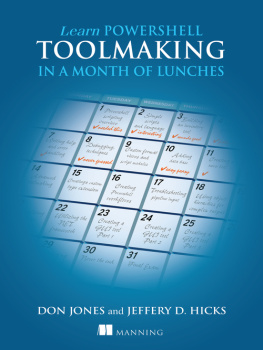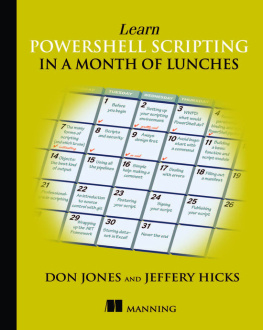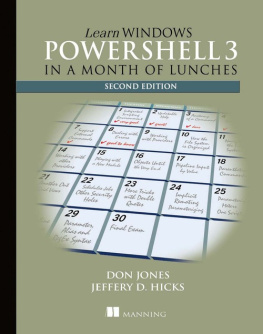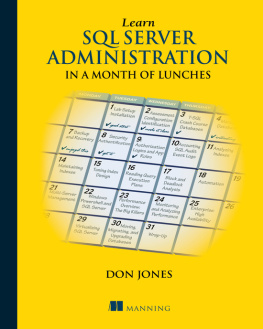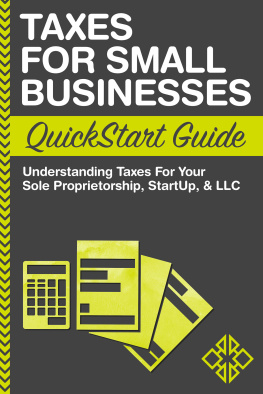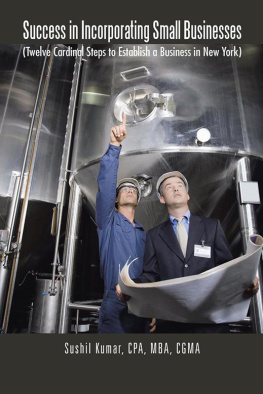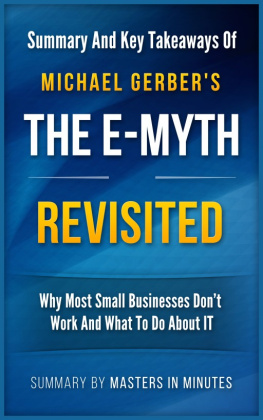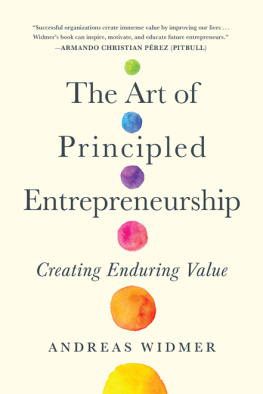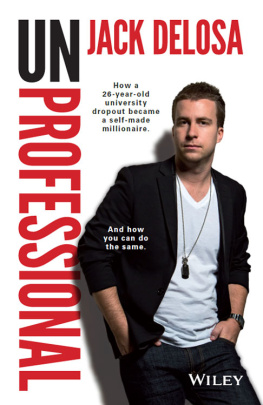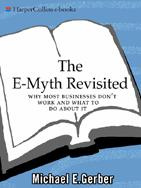This is a Leanpub book. Leanpub empowers authors and publishers with the Lean Publishing process. Lean Publishing is the act of publishing an in-progress ebook using lightweight tools and many iterations to get reader feedback, pivot until you have the right book and build traction once you do.
For everyone whos helped me be better in business.
Introduction
Ive been in the information technology industry, professionally, since about 1995. Ive been teaching technology topics since around 1997 or 1998. In recent years, I started branching out into soft skills with books like Be the Master,How to Find a Wolf in Siberia (or, How to Troubleshoot Almost Anything),The Culture of Learning, and so on. As Ive spoken with readers and colleagues online, at conferences, and such, theres been a recurring theme from them: When are you going to write a book that teaches tech people to speak more like businesspeople?
I get it. As I moved from working in the trenches and into management and leadership positions, I found I had a lot to learn. I was fortunate in that I had patient leaders over me who were willing to let me make mistakes and then help walk me through the mistake and how to do better. Im fortunate now to work for a company with truly compassionate leaders, who are themselves always learning how to be better leaders and sharing what they learn with the rest of us. And Ive also experienced the frustration of having employees work for me who just dont seem to get it a lot of the time. Frankly, I used to think of them, inside my head and admittedly dismissively, as people who just didnt care to get it and who would always feel like they were under the boss thumb simply because they wanted little more than to collect their paycheck and go home.
I was recently convinced differently, though, and thats why this book is now a thing.
Nobody is born knowing about businesses; we all have to learn about it at some point. Some of us are fortunate to have teachers from an early stage, while others of us never have that advantage. But if business is a game we play, then I think its crucial that everyone have access to the rules. After all, you cant win a game without knowing the rules. You cant even enjoy a game properly without knowing the rules. For me, knowing how businesses work, and how I can work better within them, isnt even entirely about me being successful or my employees not irritating me; its a critical life skill that every employee, from entry-level on up, needs to know simply to be happy. To feel like youve got some control over your life, and that things happen for reasons, even if you dont agree with them. That the world isnt just blind chaos. So that you can recognize if youre actually being ill-used by your employer, and if theres a method to the madness.
Ive made four or five abortive attempts at starting this book. My problem, I think, was that I started approaching it as just a list of stuff you needed to know about business, and a list of attitudes you needed to recognize or adopt. Lists. Blah. Nobody learns from lists. I realized that I didnt learn from lists; I learned from experiences. And so this book is going to be about those experiences. Im going to tell the world of business as a set of stories, most adapted from my own experiences (with names changed to protect the innocent), and a few adapted from others experiences that theyve shared with me. Ive collected lists of things you wished your employees thought about topics from my Twitter friends (Im @concentratedDon, by the way), and thought back to when I learned those lessons, and tried to tell those stories as well.
I need to make a particular point clear before we proceed: While I absolutely believe that anyone can have a positive experience in the world of business, I acknowledge that not every single company or organization is going to provide that opportunity. There are, sadly, terrible companies who treat people terribly for no other reason than that they can. All the business-level knowledge, positive attitude, critical thinking, and workplace empathy in the world wont make those better or more satisfying places to work. If you come to a point where you truly believe you know what your employer stands for, and you still feel like youre being treated unfairly, then you should leave. Changing jobs is stressful, the entire job hunt process is largely inhumane, and the prospect of having a longer commute, having to move to a different town, or all the other stuff that comes along with job changing I get it. Its horrible. But I promise that you can have a satisfying, positive, affirming experience in the world of business, once youre at the right company. A company whose decisions make sense, once you understand their perspective. This isnt just a grass is greener argument; all companies are going to seem terrible if you dont know where theyre coming from. But if youre really embracing the stuff Im sharing in this book, then I believe there is a good company for you, somewhere, and its worth your time to find it.
Okay. Enough preaching. Lets get to it.
Part 1: Know Your Business
Businesses Are People, Too
In most countries, businesses are, from a legal sense, considered entities in the same way that people are. Companies have individual rights and obligations, often pay taxes, can own and sell property, and so on. The Romans of the mid-500s (mid-500s AD, that is) recognized a range of corporate entities; the word corporation itself comes from corpus, meaning a body, or more specifically a body of people.
None of that has any bearing whatsoever on what Im talking about here. Fun facts, though.
No, what Im talking about here relates, I suppose, to the legal concept of a business being an entity, but its way more meta. Companies, like people, have needs. They have motivations, which often relate to those needs. Getting judge-y about other peoples needs is easy. For example, I cannot comprehend why the people in the condo above mine needed the yappiest-possible little dog as a present this past Christmas, but here we are. The point is that anyone or anything with different needs or motivations than yours can be easy to look down on, but whats important is to acknowledge that we all are different. That includes businesses. People get down on businesses because all they want to do is make money. Yeah, thats more or less the precise reason you start a business, so nobody should act all surprised when thats what the business primary motivator turns out to be.
Like people, businesses engage in relationships. Like any relationship, everyone in the relationship is expecting to get something from it, and the relationship only works well if everyone is getting at least most of what they need. One-sided relationships (a particular in-law comes to mind) arent healthy, are often frustrating, and are the ones most likely to end in a fight.
So lets talk about businesses and their relationships.
Probably the first kind of business relationship that springs to mind is the one businesses have with their customers. Thats an easy one, right? Customers get whatever it is the company sells, and the business receives money, and everyones basically satisfied with the relationship. There are degrees of satisfaction, though. I filled the car up with gas the other day: the gas pump worked, and the price well, it was what it was. We dont have that much variability in my neighborhood. So I suppose both myself and the business were satisfied, albeit on a somewhat vague, done-and-gone level. I mean, Im not explicitly planning a return engagement, and I dont dream wistfully of those minutes spent at the pump. Its a



